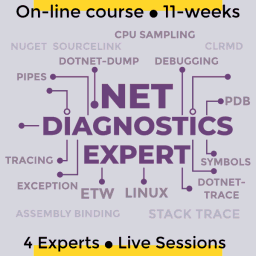Hardware failure won't stop me
This post has been imported from my previous blog. I did my best to parse XML properly, but it might have some errors.
If you find one, send a Pull Request.
TL;DR
Recently I’ve been hit by my laptop failure. I use it mostly for work related programming but it’s my general computer as well. It took me 2 hours to go back to fully functional state with an older but still powerful desktop. It’s not that bad, is it.
Too long
The main idea behind me being able to go on are services that I/my company use. And I don’t mean some fancy backup plans. That would take much more time. I mean services like:
- GitHub (for your code),
- a password manage r,
- a synchronized profile in my browser (I still tend to use a separate profile for my work and a separate for private purposes)
- a browser enabled communicator like Slack
- a browser enabled video call app like Zoom
The major part of the mentioned 2 hours was spent on installing VS 2015 + Resharper (I have a really terrible WiFi card in my PC). That would be all.
Now, it’s time for you to answer the following question: how fast as an employee and as a private person can you be back after a hardware failure?
Comments
Recovery process comes more and more easy as many of the things are synchronized with external services - microsoft account, mail account, remote repositories, cloud services etc. Nowadays we don't really need fat SSD/HDD drives but fast internet connection. The problem is people are sharing their privacy and are vulnerable to lack of internet connection. If Github gets out of service with no data recovery possibility it's gonna be catastrophy :)
by karolpawlowski1990 at 2016-02-22 22:42:32 +0000
How often does total hardware failure occurs vs the time it would take to make it shorter ?
It's a calculation of probability and risk.
In 10 years at work, I've had total hardware failure occuring once, I know I'm a single data point, but the most important source of failure has been had drives, RAID usually fixes that.
by guibec at 2016-02-23 03:36:49 +0000Aiming at the short recovery very often covers a fast introduction process for new hires in your company and lets your IT proceed more smoothly.
by scooletz at 2016-02-23 06:49:33 +0000
Do you have your own database engine(s) in the cloud or keep it locally? What about other software, do you keep it into separate VMs?
by Sławomir Bryś (@slawomirbrys) at 2016-02-22 09:07:13 +0000My db engine? You mean a preconfigured instance? I use cloud services (for Azure Storage) or a setup where db can be easily initialized to the given state.
by scooletz at 2016-02-22 09:11:24 +0000
IMHO it doesn't matter whether it is your private or company machine - if your process is correct(VMs, machine/DB snapshots, proper migrations, versioned code), recovering from a hardware failure should be easy.
The problem is when you do not own your dev machine...
by Kamil Mrzygłód (@Kamil_Mrzyglod) at 2016-02-22 20:33:29 +0000
Hey, prepare it correctly and it is freaking easy to spawn multiple VMs just to test something. Dev machines/QA machines/Build machines/Env machines - just do it?
by Kamil Mrzygłód (@Kamil_Mrzyglod) at 2016-02-23 21:19:31 +0000


